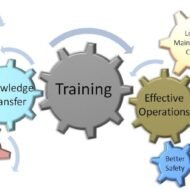Posted by Managementguru in Business Management, Motivation, Organisational behaviour, Principles of Management
on Mar 10th, 2014 | 0 comments

Motivation is one area where periodical updates are necessary for an organisation to gauge the morale and mood of their employees. Companies sometimes act very smart in that they break their hands by patting their own back. If you wish to propel your organisation forward, you need to satisfy your work force first. The million dollar question is a big “HOW?” Well, a problem properly diagnosed is half done. And this motivation thingy is not a problem at all. Keen observation and understanding is what is needed on a manager’s part to steer things in the right direction, that is good for the company. Man, even your kid will turn his back if you want to take control by unleashing your power. The right thing to do is to find out exactly how motivated they are. There are several things that come into the purview of motivation.Let us do this in a questionnaire format so that things might fall in place. Question No 1: What is that, that motivates an employee, to be more precise your employee? (This turns out to be the hot dissertation topic for many young MBA’s) Is it any one of the following? Financial rewards Clear Goals Connecting with others Rank Appreciation and Recognition Throat neck competition Job security Fear Results Excitement Variation or Diversity Principle of Motivation: Well, the principle of motivation is pretty much the same for all individuals. I 100 % go with Maslow’s hierarchial needs theory which travels right from physical needs at the base of the pyramid upto self realisation at the top. If this is the case,how come there is a disparity when everybody is subjected to the same kind of influence at the work place? For some it stops somewhere in the middle who are very much satisfied with the pay check figure and the perks that go with it. For some there is an inner drive that makes them unstoppable until they reach the pinnacle. This is the very thing that differentiates a manager from a subordinate. This is the very thing that distinguishes a CEO from a manager. This is the same thing that generates top business guns and management gurus who fall a genre apart form the rest of the crowd. Well, there are other factors such as the family background and the environmental influence that shaped up your personality all through. Motivation Surveys: Motivation surveys are not only important in getting to know your employees but also it showers a immaculate image on the company. It feels good for your workforce when they are involved and consulted with, on issues related to themselves. A recent Harvard review has stated that most of the managers feel that they really get motivated when there is : “Recognition for Good Work.” But folks, you will be surprised to know that the same review reveals another side of the coin, the top motivation for workers is when they make “Progress.” Again, call it the inner drive, impulse, motive, ambition, fire in belly, vigor, vitality…Getting to know your work force makes you “BOND WITH THEM” and it aids you in plugging the holes at the right place and at the right time. See, there is no bench mark for motivation, you respect your work force, treat them with dignity, communicate well and give them what they want and that’s it, you are defintely a winner. If you are a person capable of motivating your work force, you automatically become a source of inspiration. My humble suggestions to managers goes thus: 1. Make your employees understand what motivates them.( Kindly find what flares your temper before venturing into this exercise.!) 2....

Posted by Managementguru in Principles of Management, Training & Development
on Feb 22nd, 2014 | 0 comments

Benefits of Training to Employers The employers invest in training because they secure several benefits out of the exercise, which can be summed up as under: Faster learning of new skills Training aids the employers to lessen the learning time of their employees and accomplish higher standards of performance. The employees need not waste time in learning by observing others. If a formal training programme exists in the organization, the qualified instructors will help the new employees to acquire the skills and knowledge to do specific jobs quickly. Increased productivity Training increases the skill of the new employee in while performing a particular job. An increased skill level usually helps in increasing both quantity and quality of output. Training can be of great help even to the existing employees. It helps them to increase their level of performance on their present job assignments and prepares them for future assignments. Standardization of procedures Training can help the standardization of operating procedures, which can be learnt by the employees. Standardization of work procedures makes high levels of performance rule rather than exception. Employees work intelligently and make fewer mistakes when they possess the required know-how and skills. Lesser need for supervision. Trained employees need lesser supervision. Training does not eliminate the need for supervision, but it reduces the need for detailed and constant supervision. A well-trained employee can be self-reliant in his/her work because s/he knows what to do and how to do. Under such situations, close supervision might not be required. Economy of operations Trained personnel will be able to make better and economical use of the materials and the equipment and reduce wastage. Also, the trained employees reduce the rate of accidents and damage to machinery and equipment. Such reductions can contribute to increased cost savings and overall economy of operations. Higher morale The morale of employees is increased if they are given proper training. A good training programme shapes employees’ attitudes towards organizational activities and generates better cooperation and greater loyalty. With the help of training, dissatisfactions, complaints, absenteeism and turnover can also be reduced among the employees. Thus, training helps in building an efficient and co-operative work force. Managerial Development The top management can identify the talent, who can be groomed for handling positions of responsibility in the organizations. Newer talent increases the productivity of the organizations. By providing opportunity for self-development, employees put in their best effort to contribute to the growth of the...




